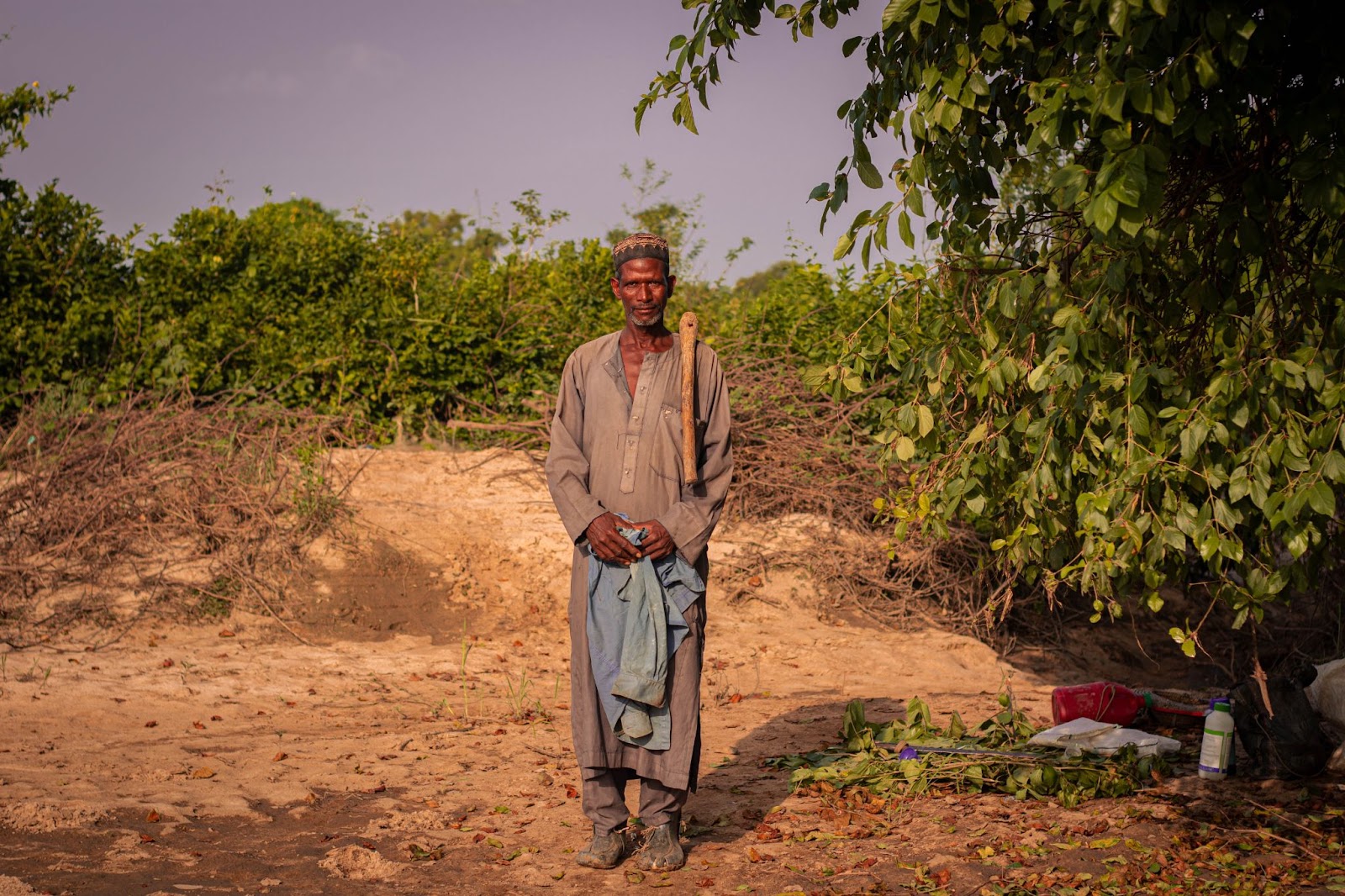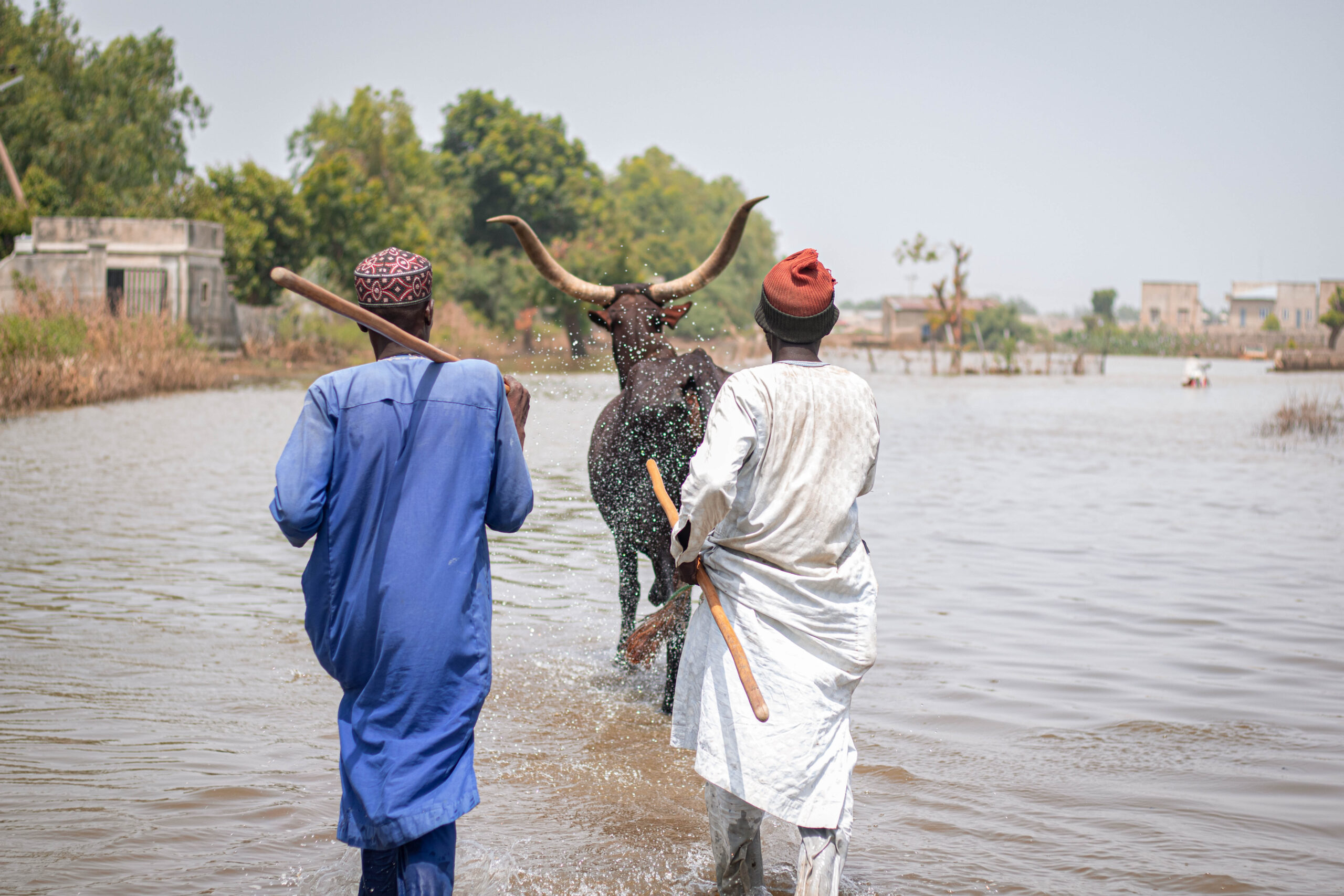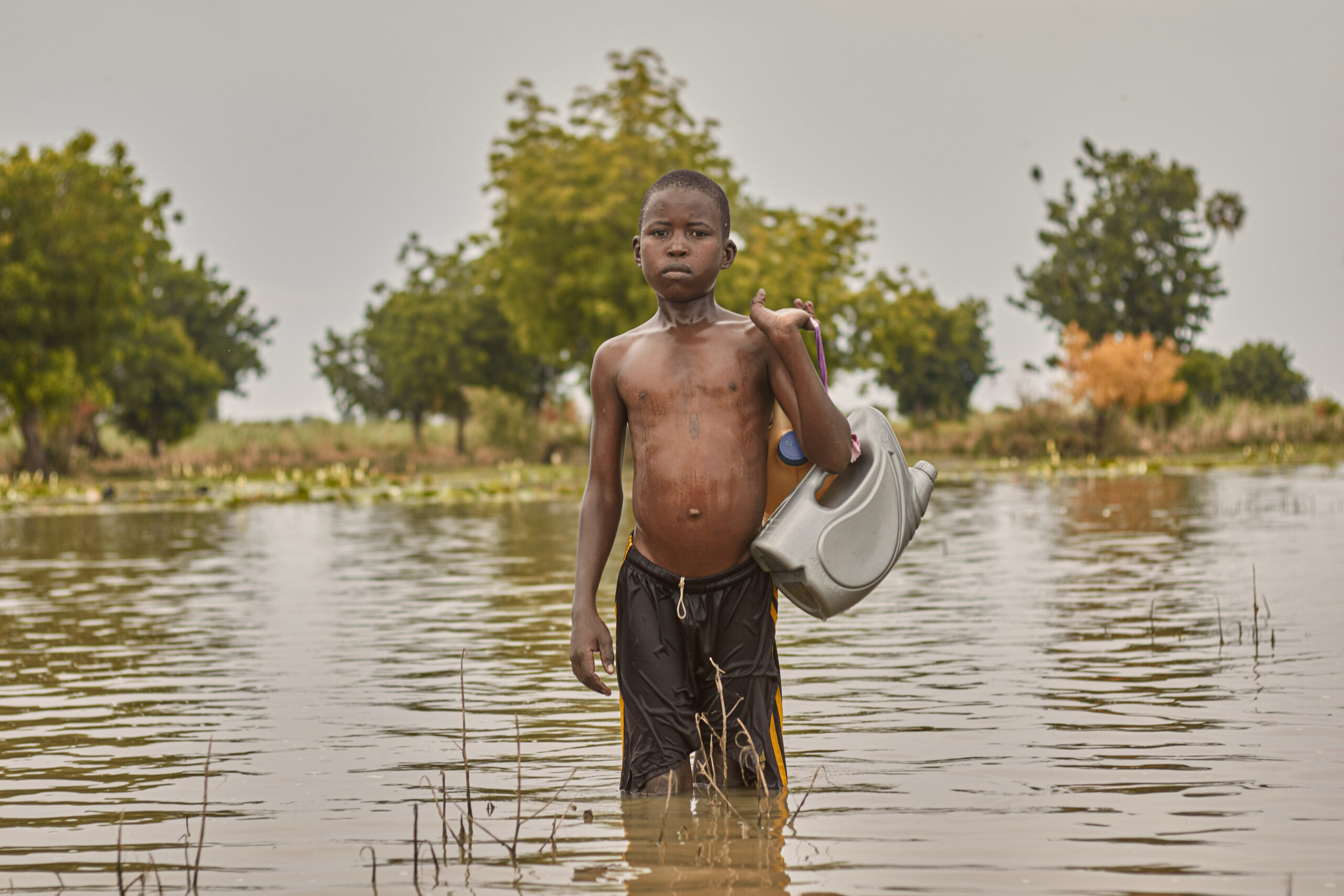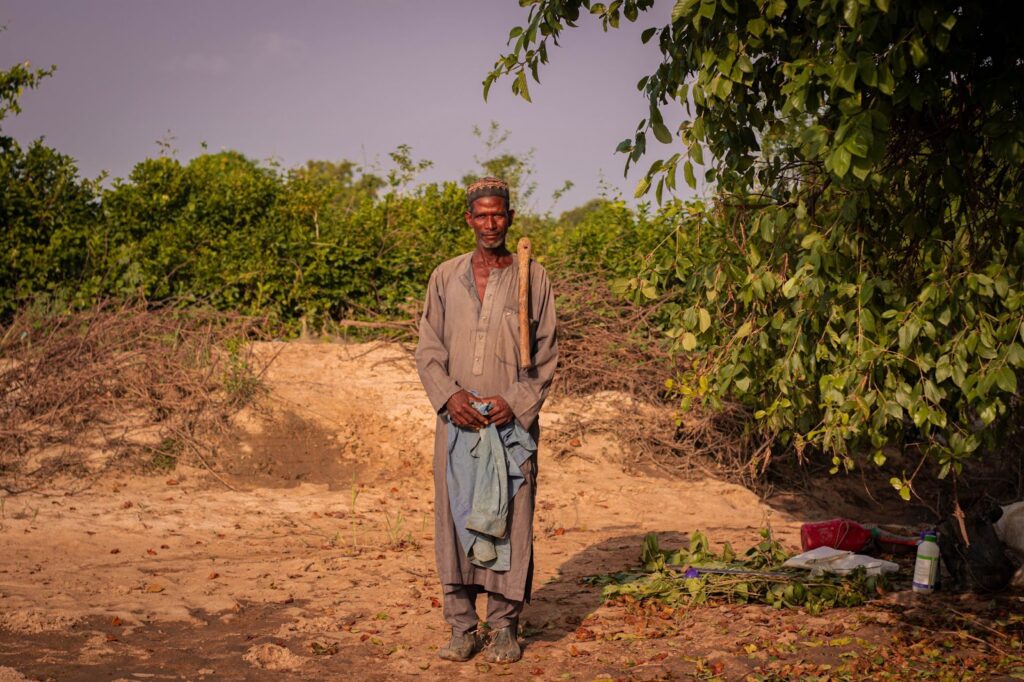Nigeria’s Floods Leave A Trail Of Ruin And Heartbreak — Photo Essay (III)
In the third and final part of this series, we visit Niger, North-central Nigeria, where travellers were stranded and farmers turned to fishing because of this year’s unprecedented floods.
Abubakar Muhammad and Salihu Muhammed sat beside the road on granite rocks, what remained of materials used to refill the ditch created weeks earlier by flooding in Sabon Gida, a community in the Gbako area of Niger, North-central Nigeria.
The road links Niger’s capital, Minna, to Bida, an ancient Nupe city. It has been cut off twice by the floods, leaving many passengers stranded for days. Since it got damaged, Abubakar and Salihu have spent days at the site directing cars.
The flood in Niger State has destroyed roads and bridges, preventing people from travelling. It has also devastated farmlands and wreaked havoc in other areas. It washed away over 500 graves in the Mariga Local Government Area (LGA). According to the local emergency management agency, it also displaced about 50,000 people across 21 LGAs, destroyed over 5,100 farms, and killed 18 people. It has heavily disrupted business and schooling activities too.
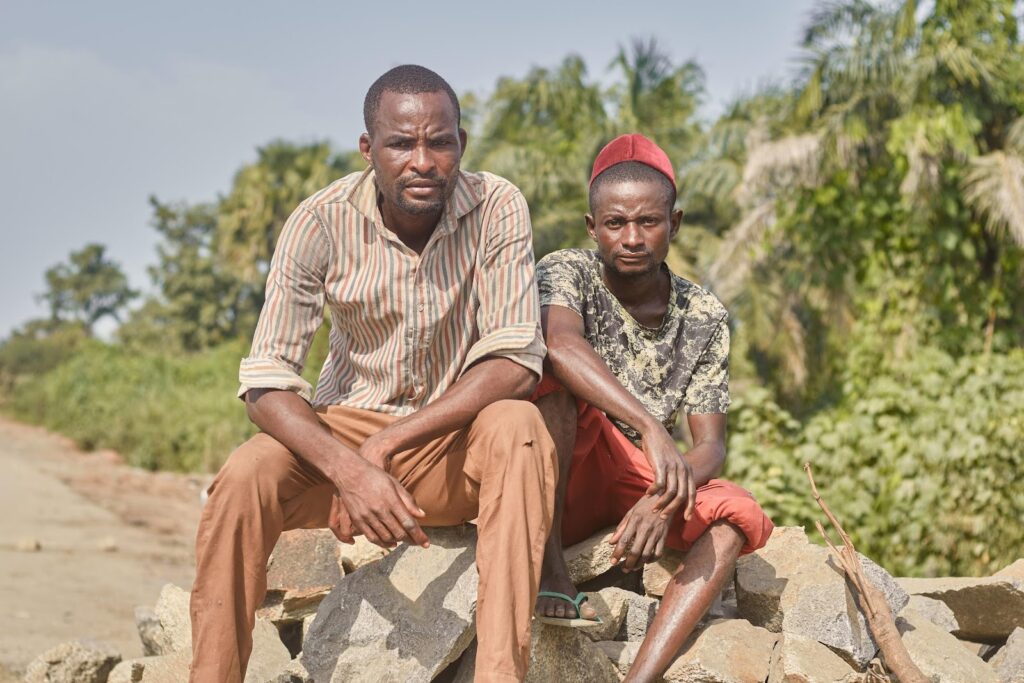
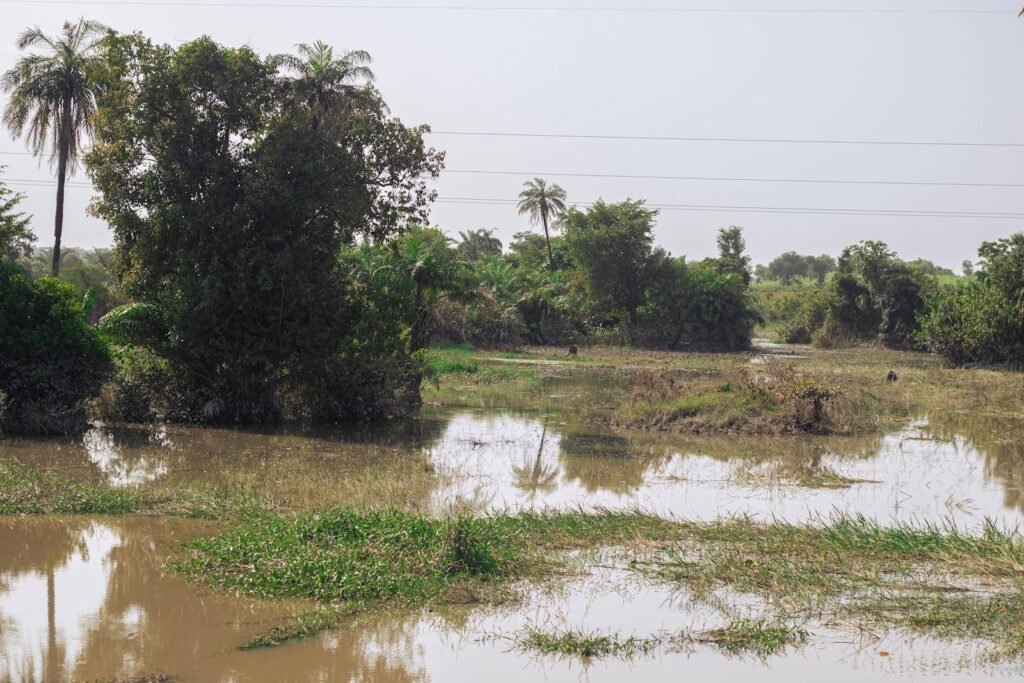
“In the middle of the night, the culvert cut off as a result of too much water, and the driver came to look for us to help him drag the car out of the ditch,” said Abubakar, who is a farmer in Sabon Gida.
“We were more than 10 people by the time we were done. I realised the water had broken the road and submerged it and all the rice farms around the area. By morning, they brought two trucks filled with granite boulders from the Ministry of Works in Minna and asked us to level it because the boulders could destroy car tyres if not properly levelled. They promised to pay us for the work, but till now we haven’t seen them. The water killed all the rice I planted, and not even a single one was spared. I have a wife and seven children and there is no food for them. But we get little from the money the motorists give me and Salihu for directing them.”
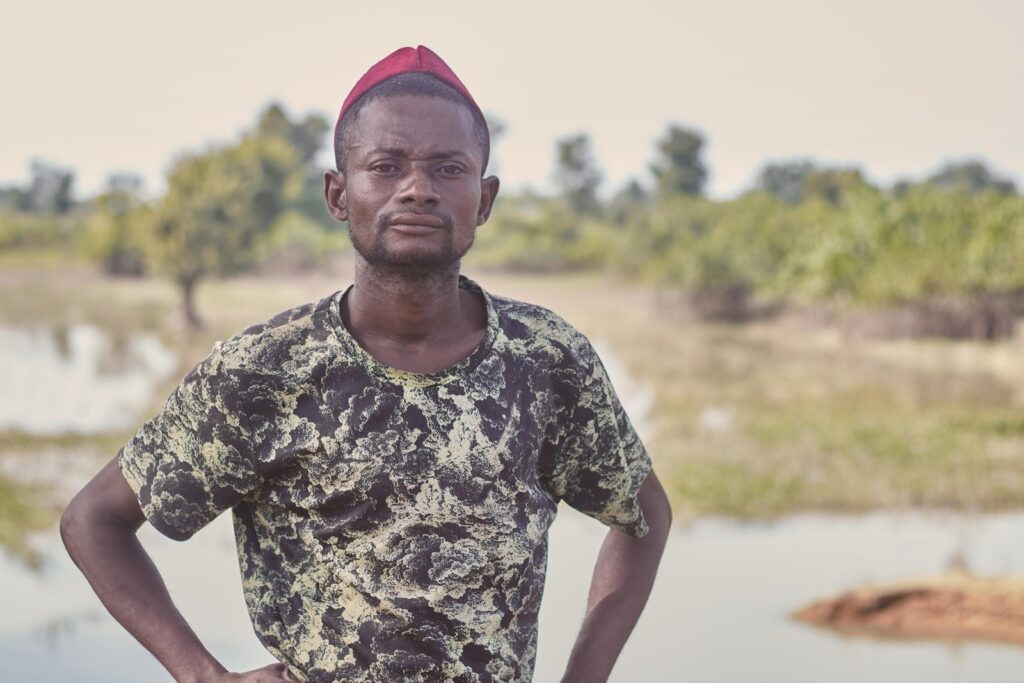
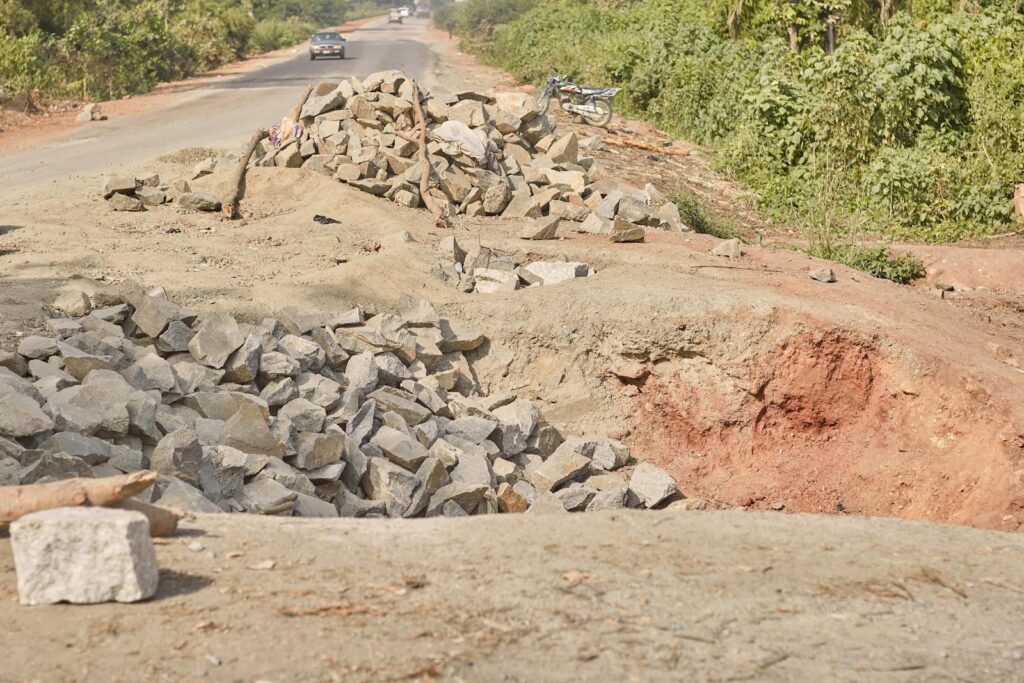
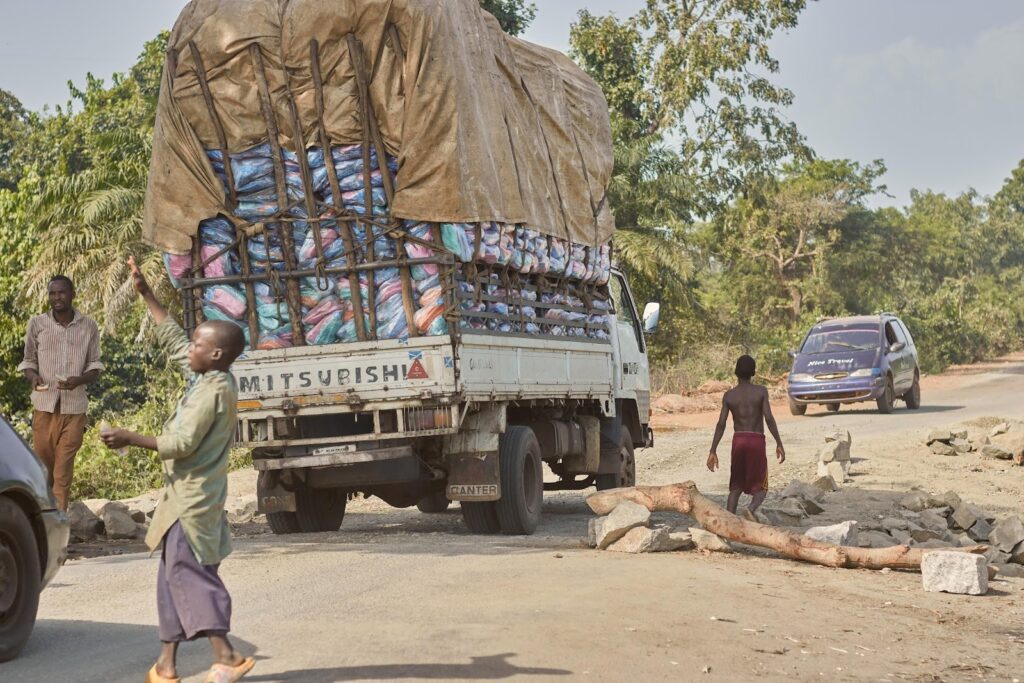
Farmers turn fishermen
As farmers across the state lost their source of income due to the flooding, many of them have returned to the business of fishing, especially since the water came with a lot of fish. Others have resorted to alternative means of earning a living.
“I am a pepper, tomato, okra, and rice farmer. One night, the river came and killed our crops and went away with my happiness,” cried Umar Momo, 32. “I am managing to survive from the fish business. I get some money to feed my family after frying the fish. The government people came and captured our data. I pray they do something meaningful so that I can return to my farming.”
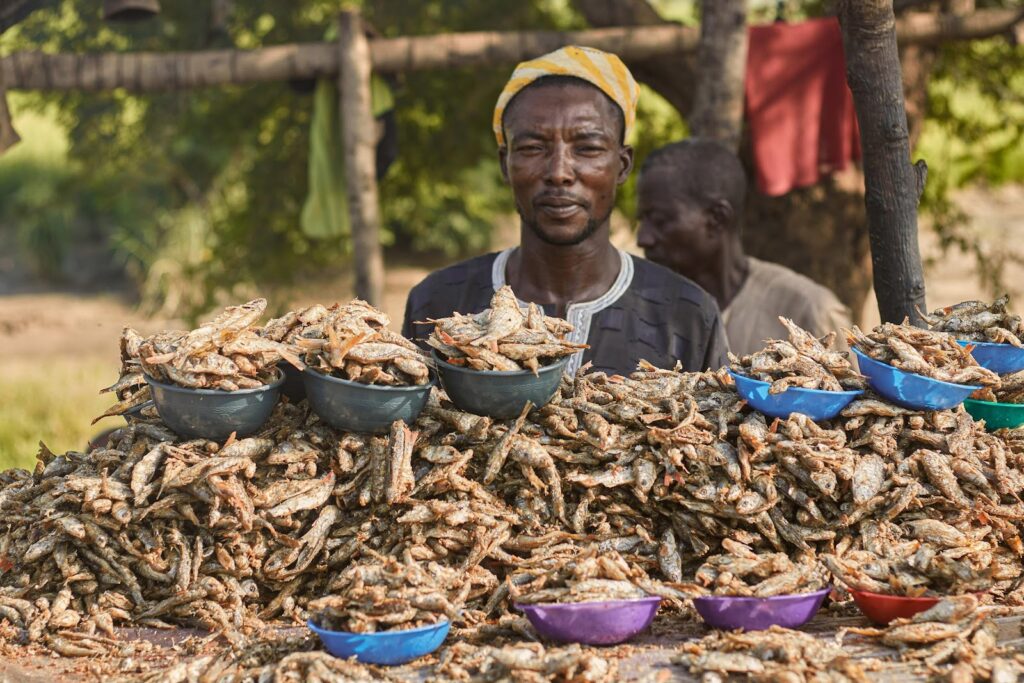
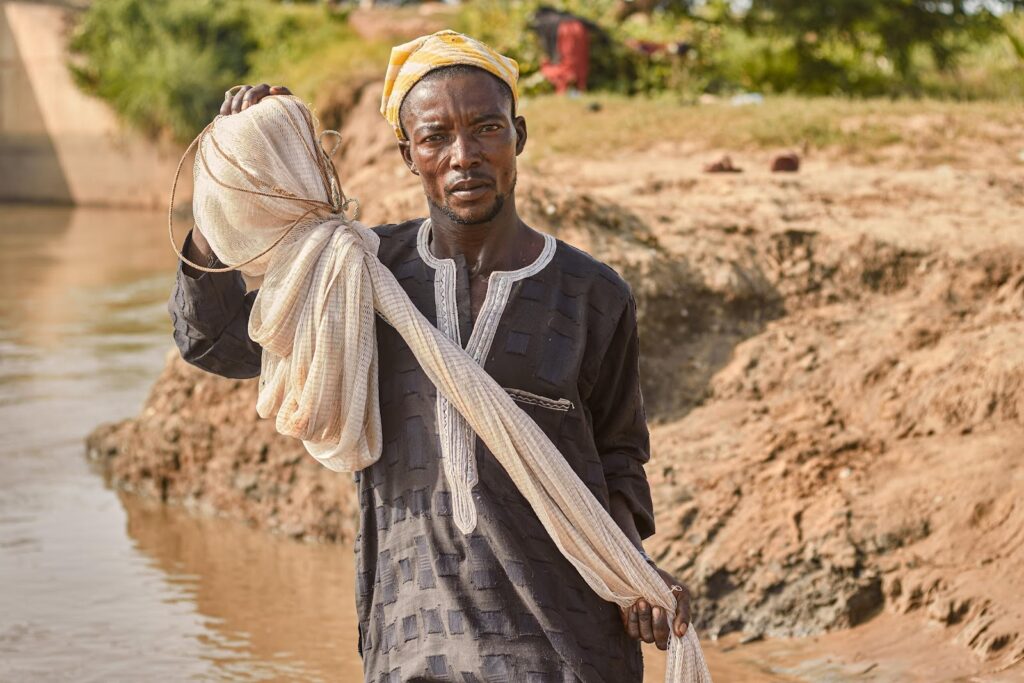
“I was away in the Enagi Local Government Area of Niger, and by the time I returned, I met my farm submerged in water,” recalled Shehu Mohammed, 45. “It left me in a terrible situation for days. I left sad, but now I have returned to catching fish.”
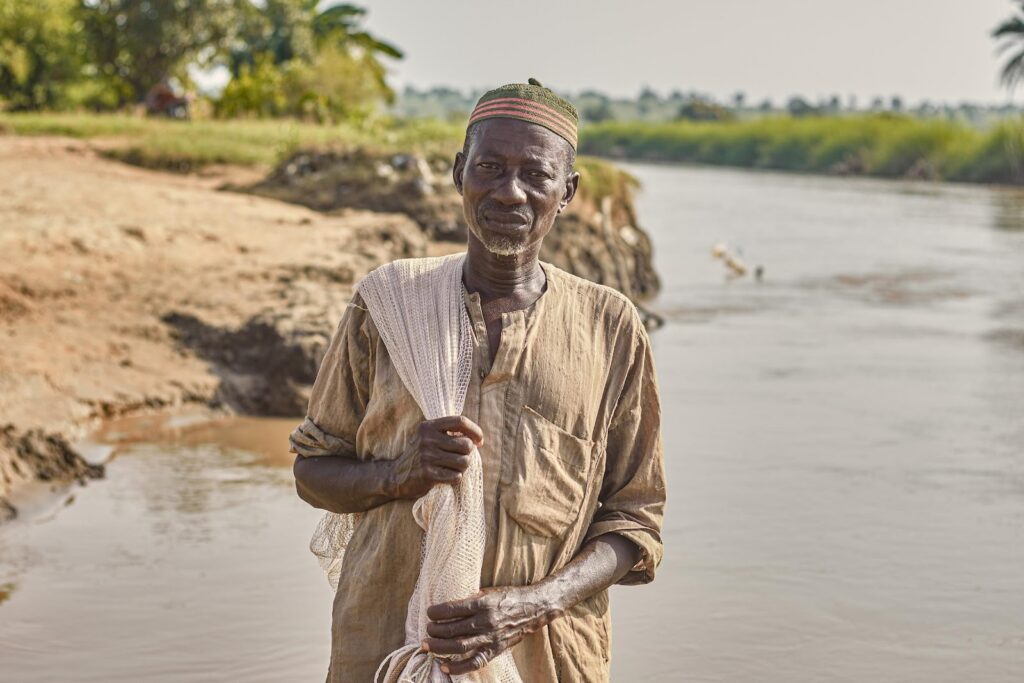
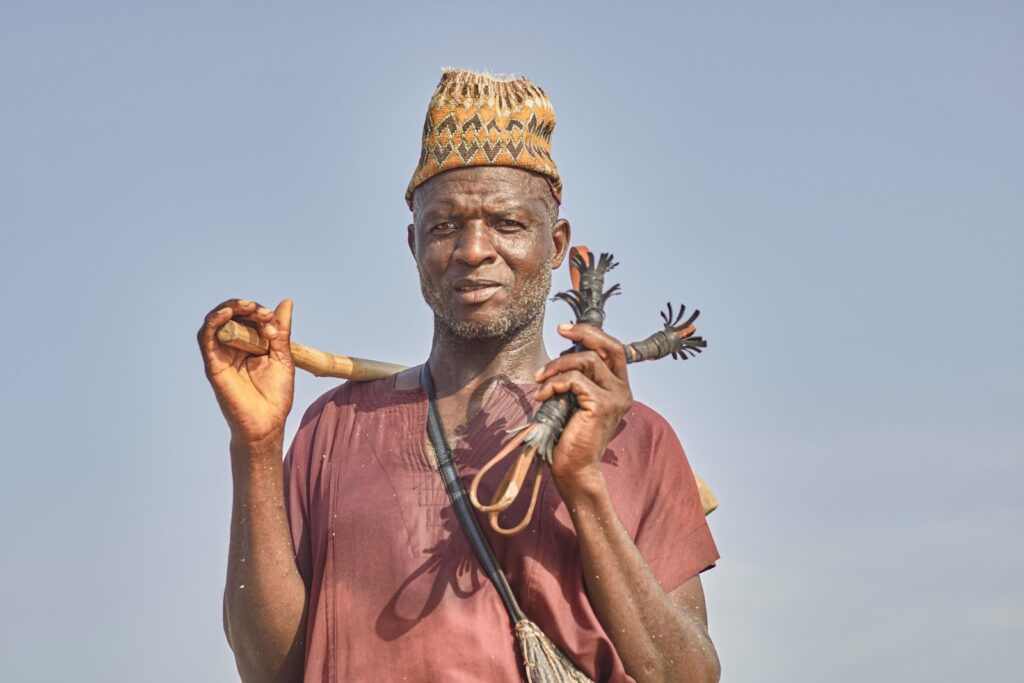
Ismail, 45, a hunter and farmer, is waiting for the dry season so he can resume farming. ‘What has happened has happened,’ he says. ‘I have left that in the hands of God even though I lost ₦200,000 ($452) in cultivating the rice the water went away with.’
Time might heal this wound
As the dry season approaches and the water drains from the flooded farms, many of the farmers have begun to make arrangements for irrigation farming with the hope that it will put a smile back on their faces.
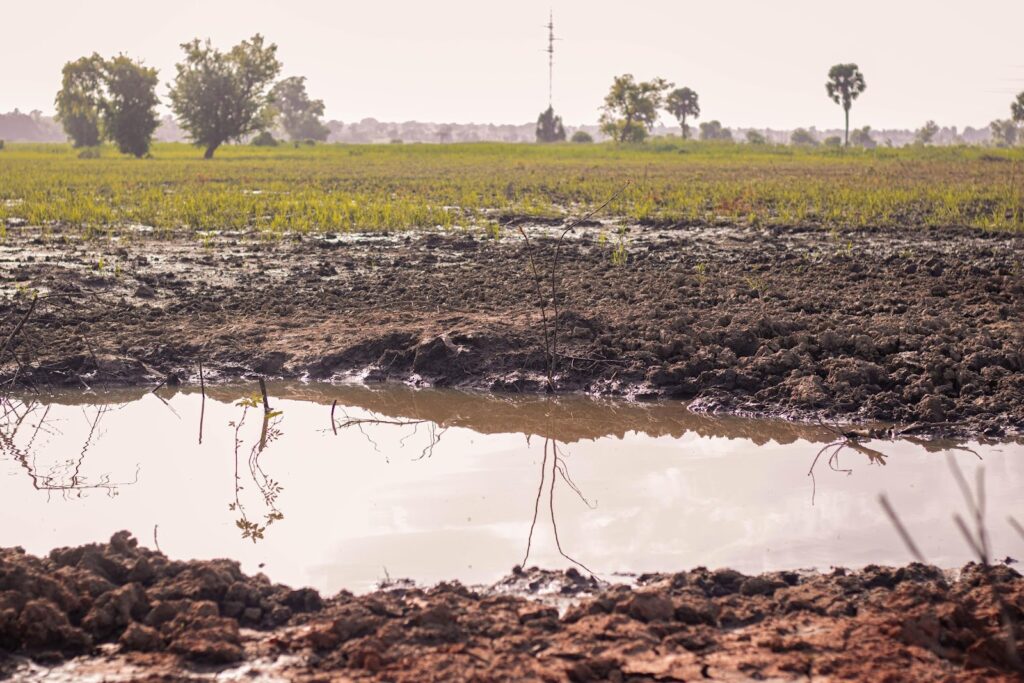
Using the water that is now pooled on the land, the farmers will try and eke out a crop that might rescue their season.
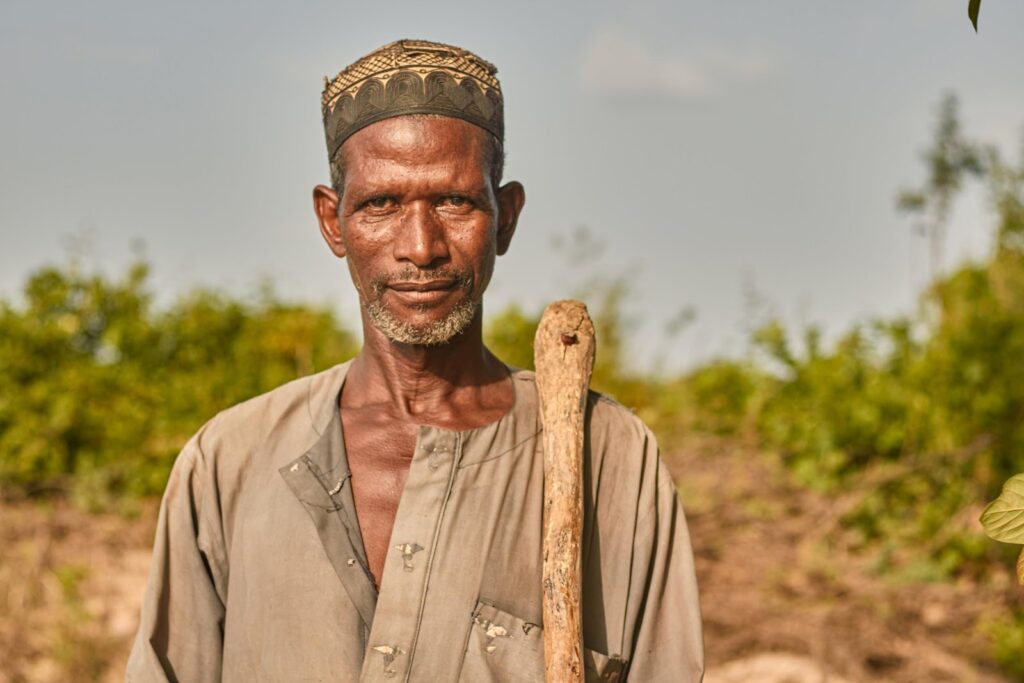
“Each time the water comes, it usually takes away all the things I planted and all the money I spent goes with the water. As you can see, I am already making arrangements for irrigation farming. I am certain I will recover from my losses,” Ibrahim Babangida, 47, said assuringly.
“I spent a lot of money cultivating the rice, and I didn’t realise anything from the farm because of the flood. Last year I made a lot of profit and part of the money was what I used for this year. I was disappointed when I came to the farm and saw my rice in water,” said the 50-year-old farmer, Hussaini Samaila.
They will run pipes into the pools of sitting water, or dig channels from them, and use motor pumps to move it to the land. Instead of growing grains, they will turn to vegetables, onions, squash and garlic growing well in these conditions.
“But I am grateful my brother gave me a loan for irrigation farming, which you see I am preparing for,” Hussaini added excitedly.
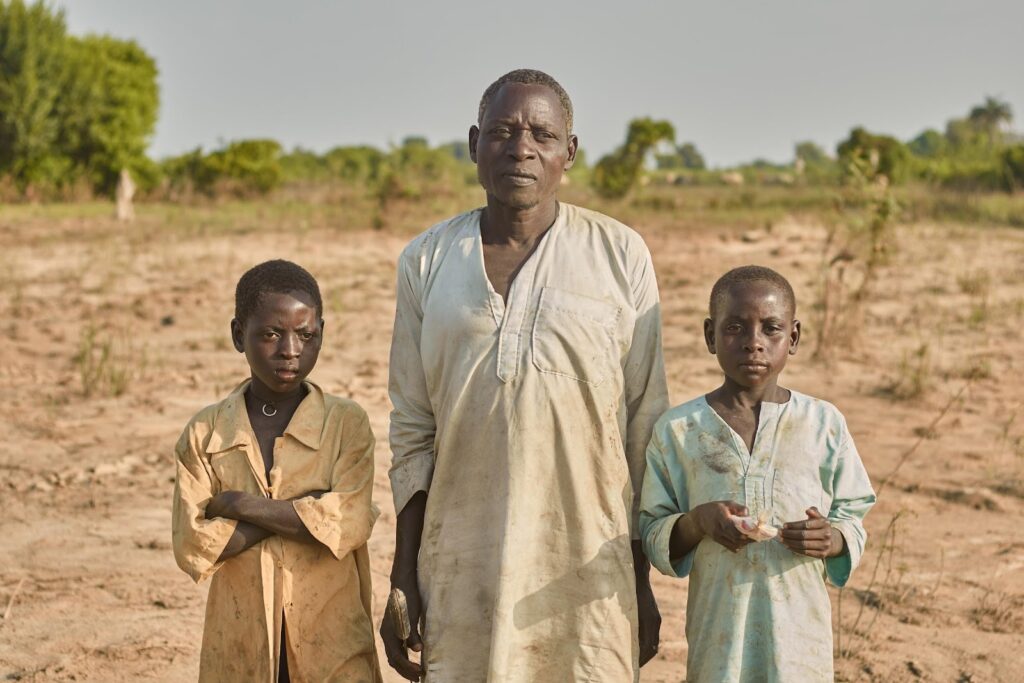
For some of the irrigation farmers along the wider Niger river banks, fortune may still smile on them after all. Others are not as lucky or full of enthusiasm.
Photography by Abubakar Sadiq Mustapha.
Support Our Journalism
There are millions of ordinary people affected by conflict in Africa whose stories are missing in the mainstream media. HumAngle is determined to tell those challenging and under-reported stories, hoping that the people impacted by these conflicts will find the safety and security they deserve.
To ensure that we continue to provide public service coverage, we have a small favour to ask you. We want you to be part of our journalistic endeavour by contributing a token to us.
Your donation will further promote a robust, free, and independent media.
Donate HereStay Closer To The Stories That Matter

